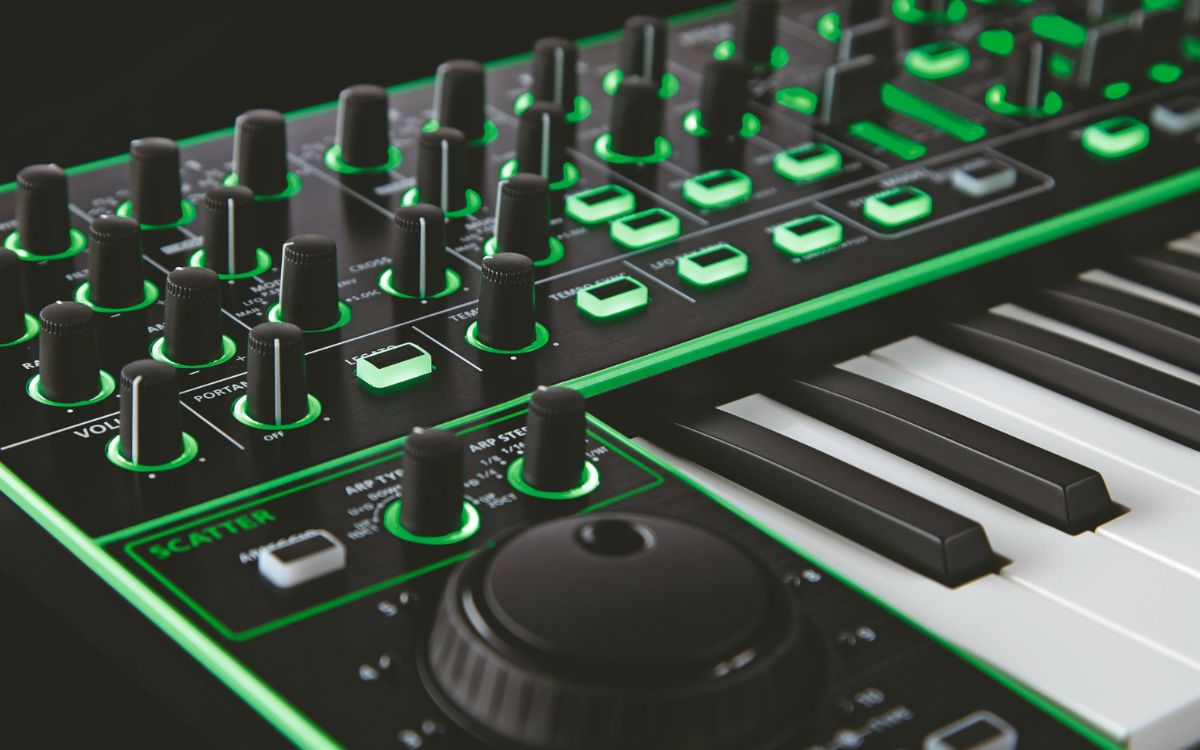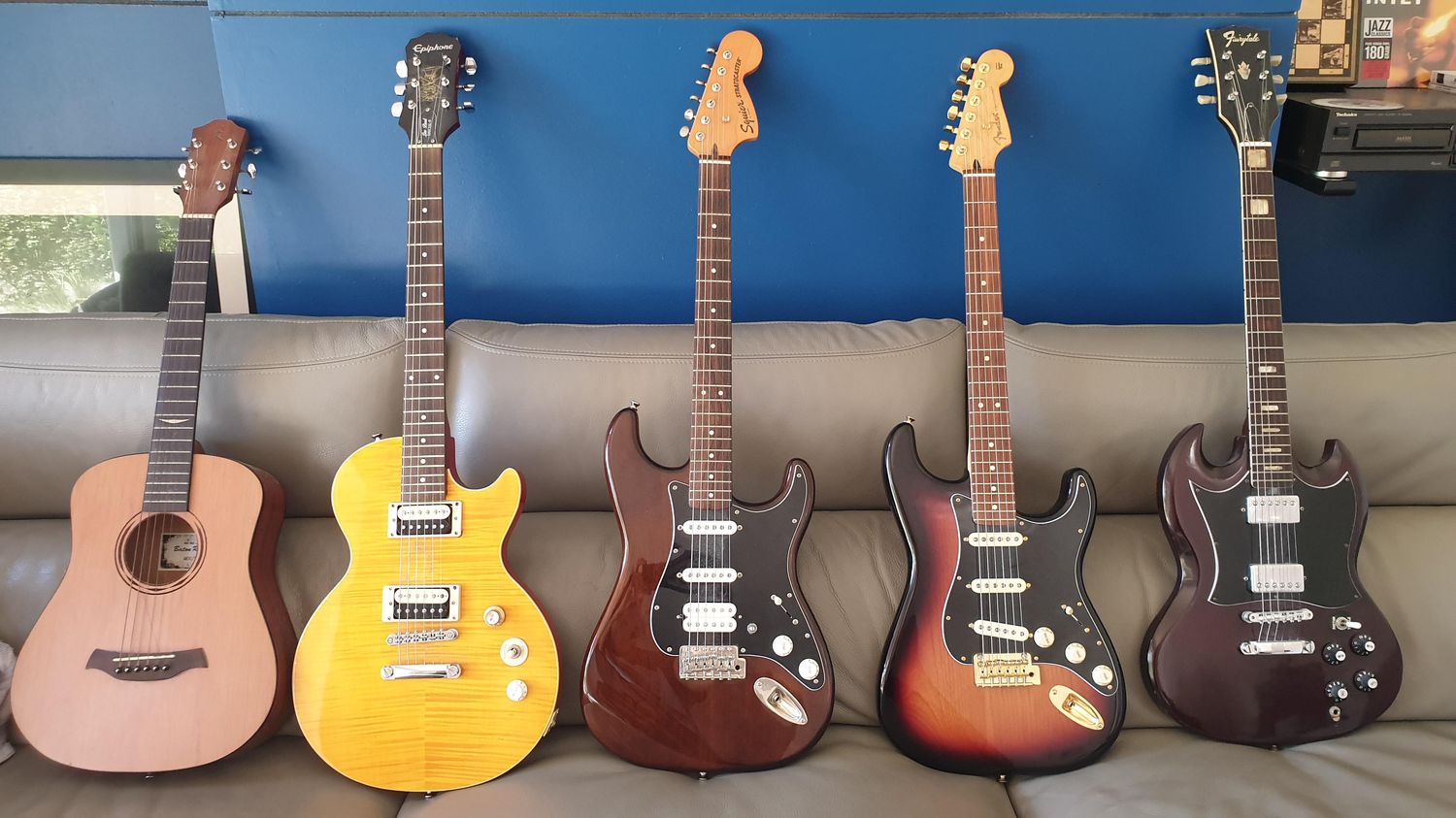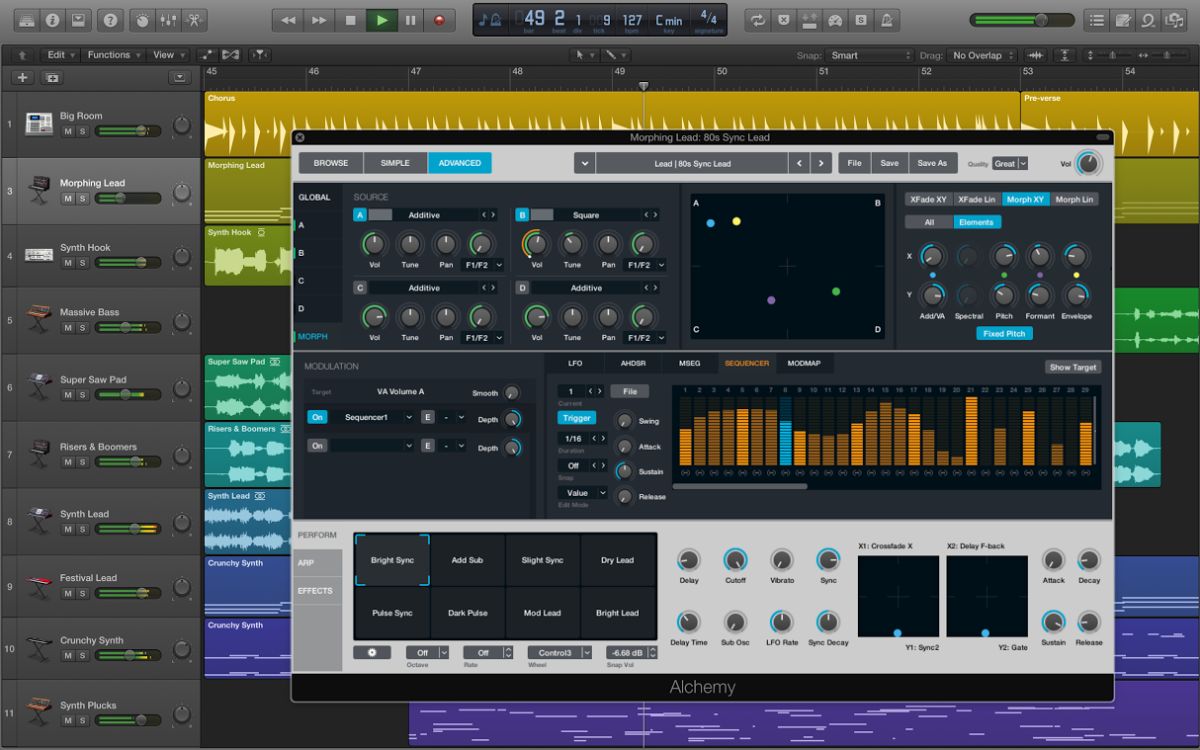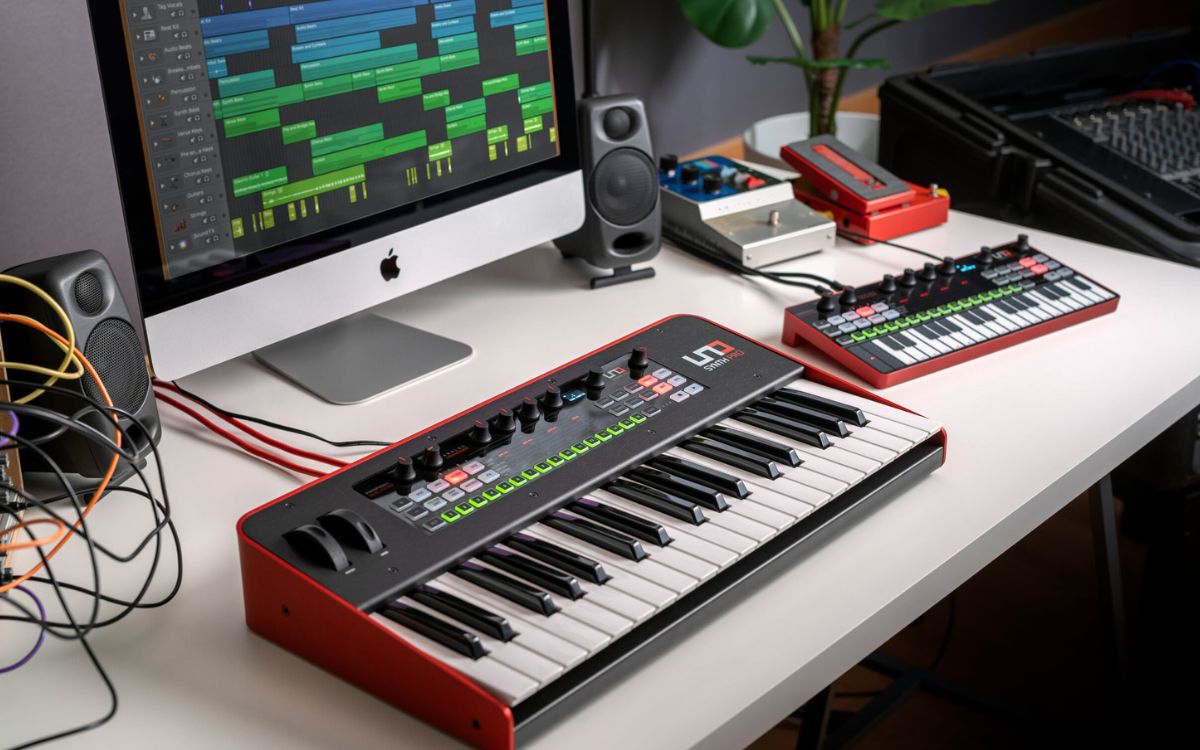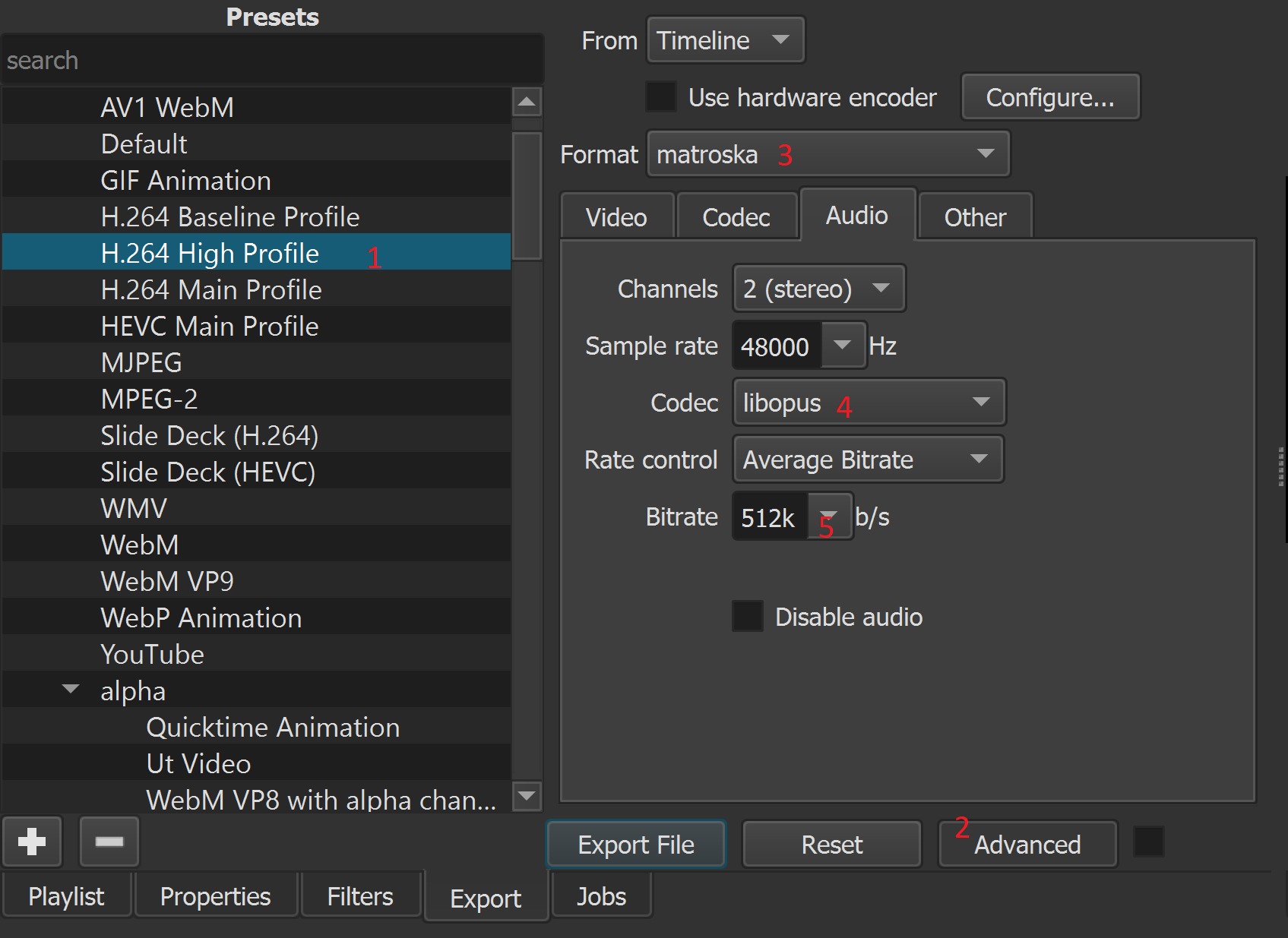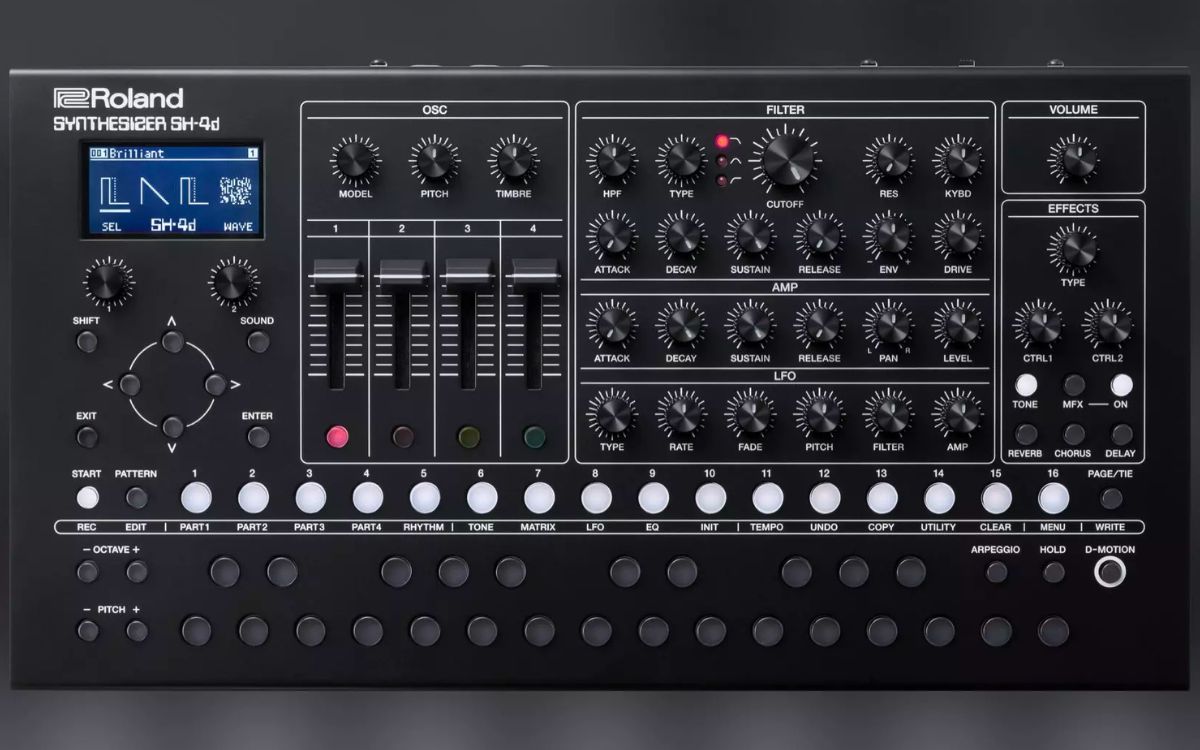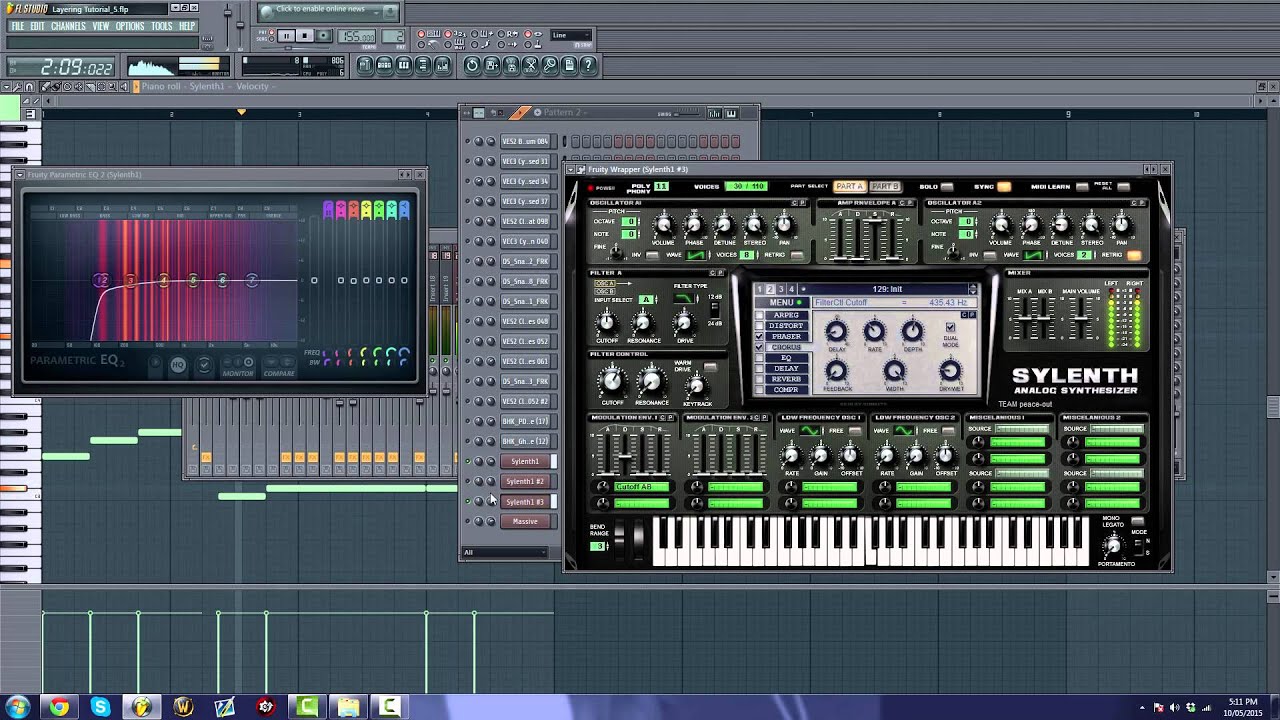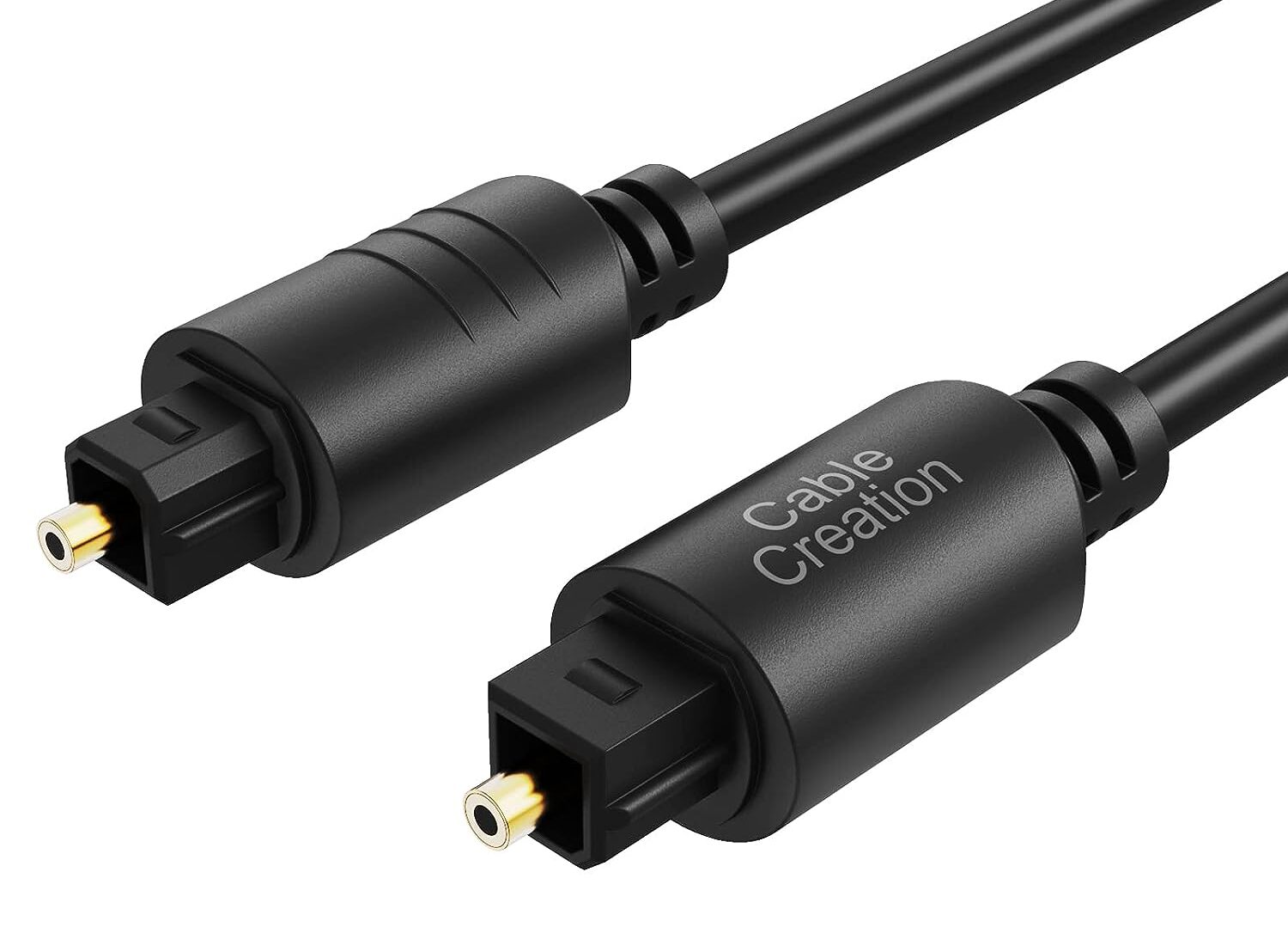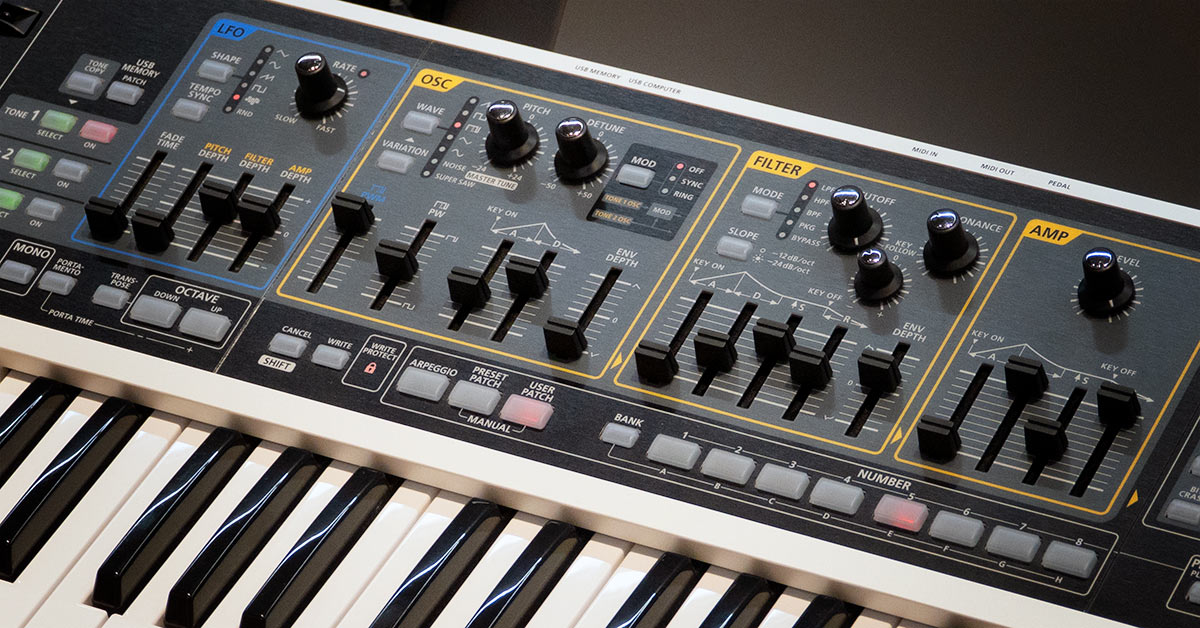Home>Instruments>Synthesizer>What Type Of Speakers Should Be Used For Korg Synthesizer
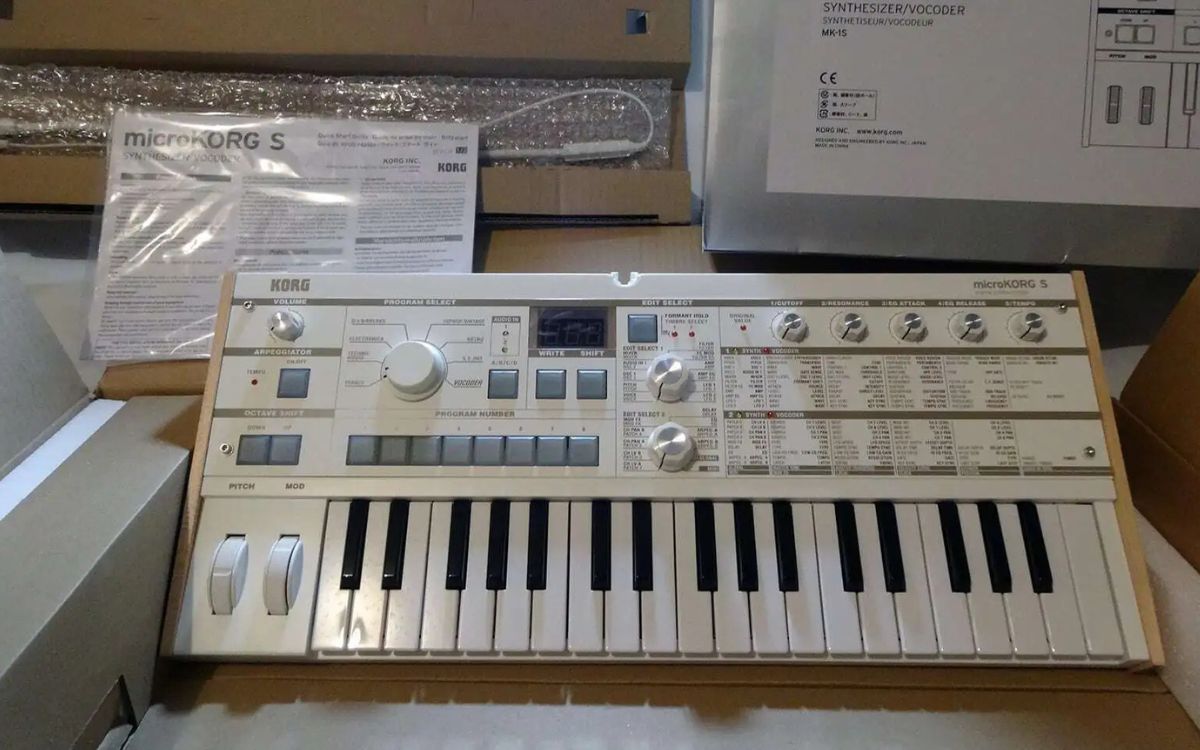

Synthesizer
What Type Of Speakers Should Be Used For Korg Synthesizer
Published: December 11, 2023
Find the perfect speakers for your Korg Synthesizer and enhance your sound experience. Discover which type of speakers are ideal for your synthesizer setup.
(Many of the links in this article redirect to a specific reviewed product. Your purchase of these products through affiliate links helps to generate commission for AudioLover.com, at no extra cost. Learn more)
Table of Contents
- Introduction
- Understanding Korg Synthesizers
- Importance of Choosing the Right Speakers
- Factors to Consider When Selecting Speakers for a Korg Synthesizer
- Frequency Response and Power Handling
- Impedance Matching
- Speaker Size and Configuration
- Active vs. Passive Speakers
- Recommended Speaker Brands for Korg Synthesizers
- Conclusion
Introduction
When it comes to enjoying the rich and vibrant sounds of your Korg synthesizer, selecting the right speakers is of utmost importance. A high-quality speaker system not only enhances your overall sonic experience but also allows you to fully immerse yourself in the expressive capabilities of your synthesizer.
Whether you’re a professional musician, a music enthusiast, or just starting your journey in the world of synthesis, understanding the significance of choosing the right speakers for your Korg synthesizer is crucial. The right combination of speakers can make a noticeable difference in the way your music is delivered, ensuring that every note, timbre, and texture is accurately reproduced.
In this article, we will dive into the various factors that need to be considered when selecting speakers for your Korg synthesizer. We’ll explore key aspects such as frequency response, power handling, impedance matching, speaker size and configuration, as well as the choice between active and passive speakers. Additionally, we’ll provide recommendations for reputable speaker brands that complement the capabilities of Korg synthesizers.
By the end of this article, you’ll have a solid understanding of what type of speakers should be used with your Korg synthesizer, allowing you to make an informed decision that will elevate your sonic experience and ensure optimal performance.
Understanding Korg Synthesizers
Korg is a renowned name in the world of synthesizers, known for producing high-quality instruments with cutting-edge technology and innovative features. Before delving into the specifics of choosing speakers for a Korg synthesizer, it’s important to have a basic understanding of what these instruments are all about.
A synthesizer is an electronic musical instrument that generates and manipulates sound. It allows musicians to create a wide range of sounds by combining and modifying different waveforms, filters, envelopes, and effects. Korg synthesizers are known for their versatility, offering a vast array of synthesis methods, from analog to digital, and everything in between.
One of the key features that sets Korg synthesizers apart is their user-friendly interfaces, which allow musicians to easily access and manipulate a multitude of parameters. Korg synthesizers often come equipped with intuitive controls, touch screens, and advanced editing capabilities, making them suitable for both beginners and experienced synthesizer enthusiasts.
Whether you own a Korg Minilogue, Korg Prologue, Korg Kronos, or any other model, the selection of speakers plays a crucial role in maximizing the sonic potential of your instrument. The speakers are responsible for accurately reproducing the wide frequency range, intricate nuances, and dynamic range that Korg synthesizers are capable of producing.
Now that we have a basic understanding of Korg synthesizers and their capabilities, let’s move on to exploring the importance of choosing the right speakers to complement these instruments.
Importance of Choosing the Right Speakers
When it comes to enjoying the true potential of your Korg synthesizer, the importance of selecting the right speakers cannot be overstated. The speakers are the final link in the audio chain, responsible for delivering the sound from your synthesizer to your ears or audience. Choosing the right speakers ensures that you experience the full depth, clarity, and tonal accuracy of your synthesizer’s output.
One of the key benefits of using high-quality speakers with your Korg synthesizer is the accurate reproduction of the instrument’s sound. Korg synthesizers are designed to deliver a wide frequency range, rich harmonics, and intricate details. By selecting speakers that can faithfully reproduce these characteristics, you can ensure that every nuance and subtlety in your music is conveyed with precision.
Another advantage of choosing the right speakers is the ability to accurately monitor your synthesis sessions. Studio monitors or reference speakers, in particular, are designed to provide a neutral and unbiased representation of your sound. This allows you to make informed decisions when crafting your music, ensuring that it translates well across different listening environments and systems.
Furthermore, using high-quality speakers can enhance your overall listening experience. Whether you’re performing live, recording in the studio, or simply enjoying your synthesizer at home, having speakers that can accurately reproduce the sound will elevate your enjoyment and allow you to fully immerse yourself in the music.
Additionally, the right speakers can complement the aesthetics and design of your Korg synthesizer. Many speakers are designed with sleek and modern aesthetics, seamlessly integrating with the overall visual appeal of your instrument setup. This not only adds to the overall appeal of your music production environment but also creates a cohesive and professional look.
Overall, the importance of choosing the right speakers for your Korg synthesizer cannot be underestimated. The right speakers not only enhance the sound quality and accuracy but also contribute to your overall listening experience and aesthetic appeal. In the next section, we will explore key factors to consider when selecting speakers for your Korg synthesizer.
Factors to Consider When Selecting Speakers for a Korg Synthesizer
Choosing the right speakers for your Korg synthesizer involves considering several important factors. Each factor contributes to the overall sound quality, performance, and compatibility with your synthesizer. Here are the key factors to keep in mind:
Frequency Response and Power Handling: The frequency response indicates the range of frequencies that the speakers can reproduce accurately. Look for speakers with a wide frequency response to ensure that the full spectrum of your synthesizer’s sound is faithfully reproduced. Additionally, pay attention to the power handling capacity of the speakers to ensure they can handle the output power of your synthesizer without distortion or damage.
Impedance Matching: It is important to match the impedance of your speakers with the output impedance of your Korg synthesizer. If the impedance is not properly matched, it can result in inefficient power delivery, reduced sound quality, and potential damage to the speakers or synthesizer. Check the specifications of your synthesizer and corresponding speaker options to ensure proper impedance matching.
Speaker Size and Configuration: The size of the speakers and their configuration (such as single driver, two-way, or three-way systems) can impact the sound reproduction. Larger speakers generally provide more bass response, while smaller speakers may offer more clarity in the mid and high frequencies. Consider the size of your listening space, intended use, and personal preferences when choosing the speaker size and configuration.
Active vs. Passive Speakers: Active speakers have built-in power amplifiers, while passive speakers require external amplification. Active speakers are convenient and often offer built-in features like volume control and equalization settings. Passive speakers, on the other hand, allow for more flexibility in terms of amplifier choice and upgrading individual components. Consider your specific needs and preferences to determine whether active or passive speakers are the right choice for you.
Room Acoustics: The acoustic properties of your listening environment can significantly impact the sound quality. Consider the size and shape of the room, the presence of acoustic treatment, and any potential reflective surfaces. Speakers with adjustable EQ controls or room correction technology can help compensate for the room’s acoustic characteristics, ensuring a more accurate sound reproduction.
Budget: Last but not least, consider your budget when selecting speakers for your Korg synthesizer. Determine a reasonable budget range and explore options that offer the best combination of features, performance, and value for your specific needs.
By taking these factors into account, you can make an informed decision when selecting speakers for your Korg synthesizer. Next, we will explore the distinction between active and passive speakers, helping you determine which type is most suitable for your setup.
Frequency Response and Power Handling
When selecting speakers for your Korg synthesizer, two important factors to consider are frequency response and power handling. These aspects play a crucial role in determining the clarity, accuracy, and overall performance of your sound reproduction.
Frequency response refers to the range of frequencies that a speaker can reproduce effectively. It is usually measured in Hertz (Hz) and expressed as a range, such as 20Hz-20kHz. A wide frequency response ensures that the speaker can accurately reproduce both low and high-frequency sounds. With a Korg synthesizer producing a wide range of tones, from deep bass to sparkling highs, it is vital to choose speakers that can faithfully reproduce this full spectrum. Look for speakers with a frequency response that matches or exceeds the capabilities of your synthesizer to ensure no frequencies are lost or distorted.
Power handling indicates the maximum amount of power that a speaker can handle without distorting the sound or causing damage. It is usually measured in Watts (W). The power output of your Korg synthesizer should be taken into account when selecting speakers, ensuring that they can handle the power output without strain. If the speaker’s power handling is too low, it may distort the sound or even risk damaging the speaker. On the other hand, if the power handling is too high, you may not fully utilize the speakers’ capabilities. Refer to the specifications of your synthesizer to determine the appropriate power handling range for your speakers.
Keep in mind that the ideal frequency response and power handling requirements may vary depending on your specific musical style, intended use, and personal preferences. If you primarily produce bass-heavy electronic music, you may prioritize speakers with a lower frequency response and higher power handling to reproduce the low-end frequencies accurately. Alternatively, if you focus on intricate melodies and high-frequency textures, speakers with a wider frequency response in the mid and high-range may be more suitable.
Ultimately, finding the right balance between frequency response and power handling is key to achieving an accurate and immersive sound reproduction for your Korg synthesizer. By selecting speakers that can handle the full range and power of your synthesizer, you can enjoy a more dynamic and faithful representation of your music.
Next, we will delve into the importance of impedance matching and its impact on your speaker selection process.
Impedance Matching
Impedance matching is a critical consideration when selecting speakers for your Korg synthesizer. Impedance refers to the resistance to the flow of electrical current in a circuit, and it is typically measured in Ohms (Ω). Matching the impedance of your speakers to the output impedance of your synthesizer is essential for optimal performance and sound quality.
When the impedance of your speakers is properly matched to your Korg synthesizer, it ensures efficient power transfer and prevents potential issues with distortion, signal loss, or damage to your equipment. If the impedance is mismatched, it can result in an impedance mismatch, where the power is not effectively transferred from the synthesizer to the speakers.
Most Korg synthesizers have a specified output impedance, indicating the ideal load impedance for connected speakers. It is important to refer to the specifications of your particular model to determine the recommended impedance range. Speaker options should then be chosen accordingly, with a matching or closely-matching impedance rating.
Impedance mismatch can have several consequences. If the speaker’s impedance is lower than the specified range, it will draw more current from the synthesizer, potentially overloading the amplifier section of your synthesizer and leading to distortion or even equipment failure. On the other hand, if the speaker’s impedance is higher, it may not draw enough current, resulting in reduced power output and poorer sound quality.
It’s worth noting that some speakers have variable impedance settings, allowing you to adjust and match the impedance to your synthesizer. This can provide added flexibility and compatibility, especially if you plan to use multiple types of synthesizers or audio equipment.
Impedance matching ensures optimal power transfer, signal integrity, and overall performance. It is always recommended to follow the manufacturer’s guidelines and consult with experts or audio professionals to ensure proper impedance matching between your Korg synthesizer and speakers. This will help you achieve the best possible sound quality and protect the longevity of your equipment.
Next, we will explore the significance of speaker size and configuration when selecting speakers for your Korg synthesizer.
Speaker Size and Configuration
When choosing speakers for your Korg synthesizer, it’s important to consider the size and configuration of the speakers. The size and configuration directly impact the sound quality, frequency response, and overall sonic experience.
Speaker size refers to the physical dimensions of the speakers, usually measured in inches for the diameter of the main driver or woofer. Generally, larger speakers tend to produce more powerful bass frequencies, while smaller speakers excel in mid and high-range frequencies. However, the size of the speaker alone is not the sole determinant of sound quality.
When selecting the speaker size, consider the size of your listening space and the intended application. If you have a small studio or practice room, compact speakers with smaller drivers may be more appropriate. On the other hand, if you have a larger space or plan to use the speakers for performance purposes, larger speakers with bigger drivers can provide the necessary volume and low-end presence.
Configuration refers to the number of drivers and the arrangement within the speaker enclosure. Different configurations, such as two-way, three-way, or even more complex setups, have their own characteristics and benefits.
Most entry-level speakers are two-way systems, consisting of a woofer for low-frequency reproduction and a tweeter for high-frequency sounds. This configuration provides a balanced representation of the frequency spectrum, making it suitable for a wide range of musical genres.
Three-way speaker systems add a mid-range driver to the two-way setup, allowing for better separation and clarity across the entire frequency range. These configurations can provide a more detailed and nuanced sound reproduction, making them ideal for critical listening or professional studio environments.
When choosing the speaker configuration, consider the complexity of the music you produce and your listening preferences. More complex configurations can offer greater precision and accuracy, but they may also come with a higher price tag.
It is also important to keep in mind that the optimal speaker size and configuration depend on personal preferences and the specific genre or style of music you produce. While larger speakers typically produce more bass, adding a subwoofer to a smaller system can also compensate for any low-frequency limitations.
Ultimately, the choice of speaker size and configuration should be based on your specific needs, the characteristics of your Korg synthesizer, and the listening environment. Experimentation and careful consideration will help you find the perfect balance and achieve the desired sound reproduction.
In the next section, we will explore the differences between active and passive speakers to help you determine the most suitable option for your Korg synthesizer setup.
Active vs. Passive Speakers
When selecting speakers for your Korg synthesizer, one decision you will need to make is whether to choose active or passive speakers. Both types have their own advantages and considerations, so let’s explore the differences between the two.
Active speakers, also known as powered speakers, have a built-in amplifier within the speaker enclosure. This means that they do not require an external amplifier to drive the speakers. Active speakers are convenient because they eliminate the need for a separate amplifier, reducing the cable clutter and setup complexity. They often come with integrated features such as volume control, tone adjustment, and sometimes even built-in DSP (digital signal processing) for room correction.
Active speakers are typically designed to work optimally with the specific driver and amplifier configuration they come with. This ensures that the amplifier is perfectly matched to the speakers, resulting in better overall performance and sound quality. Additionally, active speakers are often designed with built-in protection circuitry to prevent damage from high volumes or overdriven signals.
Passive speakers, on the other hand, require an external power amplifier to drive them. They do not come with a built-in amplifier and rely on a separate amplifier unit for signal amplification. Passive speakers offer more flexibility in terms of amplifier choice, allowing you to match the speaker characteristics to the amplifier’s capabilities. This can be beneficial if you want to have more control over the sound and potentially upgrade individual components in the future.
Passive speakers are often considered the traditional choice for professional audio setups, as they offer a higher level of customization and expandability. However, they require careful consideration and proper pairing with an amplifier of sufficient power and matching impedance to avoid underpowering or damaging the speakers.
When deciding between active and passive speakers, consider your specific needs and preferences. Active speakers are a convenient all-in-one solution, offering simplicity and integrated features. They are ideal for smaller setups, home studios, and portable applications. Passive speakers, on the other hand, provide more control, flexibility, and customization options, making them suitable for larger studios, live performances, and situations where scalability is important.
It’s important to note that both active and passive speakers can deliver high-quality sound reproduction when chosen and set up correctly. It ultimately comes down to your specific requirements, budget, and the level of control and customization you desire for your Korg synthesizer setup.
In the next section, we will share some recommended speaker brands that are well-suited for Korg synthesizers.
Recommended Speaker Brands for Korg Synthesizers
When it comes to selecting speakers for your Korg synthesizer, there are several reputable brands that offer high-quality and performance-driven options. Here are some recommended speaker brands that are well-suited for Korg synthesizers:
1. Yamaha: Yamaha is a trusted name in the audio industry, known for producing a wide range of speakers suitable for various applications. Their studio monitors, such as the Yamaha HS series, offer accurate and detailed sound reproduction, making them an excellent choice for critical listening and music production.
2. JBL: JBL has a long-standing reputation for designing professional-grade speakers. Their studio monitors, like the JBL LSR series, deliver a balanced sound and precise imaging, enhancing the sonic capabilities of your Korg synthesizer. They also offer portable options for on-the-go musicians.
3. KRK: KRK Systems is well-regarded for their studio monitors, which are known for their accuracy and clarity. The KRK Rokit series, in particular, provides a balanced frequency response and exceptional imaging, making them an excellent choice for both recording and mixing applications.
4. Genelec: Genelec is renowned for its high-end studio monitors that are embraced by professionals in the audio industry. Their speakers, such as the Genelec 8000 series, are known for their exceptional accuracy, detailed sound reproduction, and outstanding build quality.
5. Mackie: Mackie offers a range of studio monitors suitable for various budgets. Their MR series provides reliable performance and solid sound reproduction, making them a popular choice for home studios and multimedia applications.
While these brands are recognized for their exceptional speaker offerings, it is important to consider the specific models and series within each brand. Each speaker model has its own characteristics, frequency response, and sonic signature, so it’s advisable to listen to various options and read reviews to find the perfect match for your Korg synthesizer.
Remember, the ideal speaker brand and model will depend on your personal preferences, musical style, budget, and the specific sound requirements of your Korg synthesizer. Take the time to research, test, and compare different options before making a final decision.
In the final section, we will conclude the article and summarize the key points discussed.
Conclusion
Choosing the right speakers for your Korg synthesizer is crucial for achieving the best sound quality and optimal performance. By considering factors such as frequency response, power handling, impedance matching, speaker size and configuration, and the choice between active and passive speakers, you can make an informed decision that suits your specific needs and preferences.
Ensure that the speakers you select can accurately reproduce the full range of frequencies produced by your Korg synthesizer. Matching the impedance of your speakers to your synthesizer’s output impedance will ensure efficient power transfer and prevent potential issues with distortion or damage to your equipment.
Consider the size and configuration of the speakers to suit your listening space and musical style. Whether you choose active speakers for their convenience or passive speakers for their flexibility, both can deliver high-quality sound reproduction when properly selected and paired with your Korg synthesizer.
Reputable speaker brands such as Yamaha, JBL, KRK, Genelec, and Mackie offer a range of options that are well-suited for Korg synthesizers. However, it’s essential to listen to different models and read reviews to find the perfect match for your specific requirements.
Ultimately, selecting the optimal speakers for your Korg synthesizer setup will enhance your overall music production experience, allowing you to fully immerse yourself in the expressive capabilities of your instrument. Take the time to research, listen, and compare options to make an informed decision that will elevate your sonic journey.
We hope this article has provided you with valuable insights into the importance of choosing the right speakers for your Korg synthesizer and the factors to consider when making your selection. Now, it’s time to embark on your journey to find the perfect speakers that will bring your Korg synthesizer to life.

